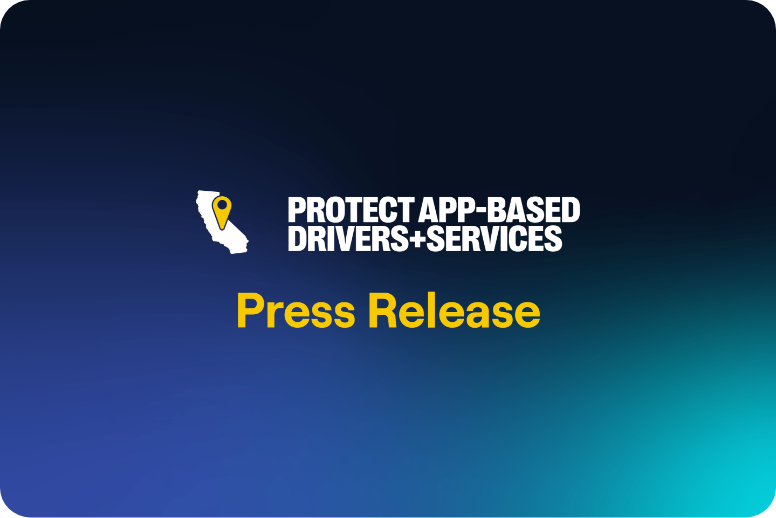By Rev. Jonathan E. Moseley
The COVID-19 pandemic has shone a light on some of the starkest divides in communities across California. And while communities of color have been hardest hit by the pandemic, job loss, economic impact and long term health impacts, it’s important to remember that these are not new. Historically, finding good-paying jobs that provide economic security has been made difficult for far too many Black Americans and unfortunately, this trend persists today.
Just look at the disparity in unemployment numbers. In our community, the rate of Black unemployment is nearly double that of white Californians, and while unemployment is declining for other groups, our communities have seen little improvement.
Yet as these inequalities in traditional forms of employment continue, the so-called gig economy has improved prospects for Black workers by putting power back in their hands and creating opportunities to supplement their income on their terms. The growth of app-based work here in California has provided major benefits for the state’s Black community, especially during the financial challenges stemming from the pandemic. When the state’s economy entered a deep recession due to COVID-19, more than 800,000 Californians turned to app-based rideshare and delivery services for the first time to earn income which helped provide for themselves and their families. A report from 2021 found that app-based drivers in California earned $4.2 billion in income throughout the first year of the COVID-19 pandemic, with a significant percentage of them being workers of color.
More than a year after Prop 22, which was overwhelmingly approved by voters and protected app-based drivers independence and flexibility, most app-based workers appear to be very happy with how the law is working.
Take Chancy for example – a husband, father and sports coach. Chancy is also a rideshare driver in Los Angeles and the flexibility of app work allows him to support his family while being for his children. This flexibility is especially important for Black drivers with families who have had to share childcare duties and supervise their kid’s remote schooling while working when they are able during the ongoing pandemic. Flexibility has been essential for them to survive during the challenges the last two years have presented to lower-income families.
The value and importance of these earning opportunities are undeniable, especially for workers in the Black community. A new study shows that driver earnings have increased from $27/hour to $34/hour over the last two years, and more than 80% of drivers are satisfied with their work. It’s important that we respect their wishes and the will of the voters too. For drivers, the flexibility of this work has been essential in giving them a chance to supplement their main earnings when they can and make ends meet in difficult times.
Unfortunately, opponents of Prop 22 are still at it, trying to undermine the law with misinformation and repeated legal challenges. Considering all the progress that has been made for Black workers, California’s courts should protect Prop 22 and ensure that the will of voters is upheld. The opportunities provided by app-based jobs are improving earnings and economic security in a way we’ve never seen before, giving Black workers a chance to get ahead after so many years of just getting by.
Reverend Jonathan E. Moseley is the Western Regional Director of National Action Network.
Read the original article in full

The Latest News

Press Releases
California Supreme Court Unanimously Upholds Prop 22 in Historic Ruling
Date: July 25, 2024 Contact: Molly Weedn, (415) 209-4217 [email protected] California Supreme Court Unanimously Upholds [...] Read more
Press Releases
PADS Responds to Conclusion of Oral Arguments on Prop 22
Date: May 21, 2024 Contact: Molly Weedn, (415) 209-4217 [email protected] The Coalition to Protect App [...] Read more
